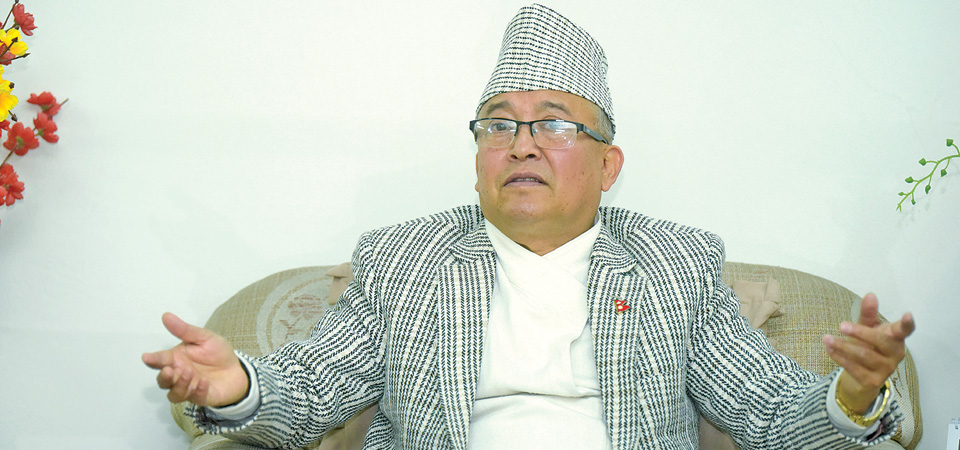ECN begins feasibility study for EVM application in local polls

By Modnath Dhakal
Kathmandu, Feb. 10: The Election Commission of Nepal (ECN) has started the feasibility study for the use of Electronic Voting Machines (EVMs) in the upcoming local level elections slated for 13 May 2022.
The commission is for the use of EVM to reduce the cost and complexity in the polls, said Chief Election Commissioner, Dinesh Kumar Thapaliya.
It will use the machines developed by youth scientists Ram and Laxman after assessing the accuracy and authenticity of the machine. According to Thapaliya, if the economic resources allowed and voters could be made ready to use the machine, the ECN is planning to use EVMs in six metropolitan cities and municipalities in the Kathmandu Valley in the upcoming local elections.
A committee is formed under the leadership of Anil Kumar Dutta, Joint Secretary of the Ministry of Communication and Information Technology, to study the prospects of EVM at least at the cities. A meeting of the commission on Wednesday decided to form the committee, said Shaligram Sharma Poudel, Spokesperson of the ECN.
The committee has the representations of the Department of Industry, Nepal Bureau of Standard and Metrology and other concerned agencies. It has the mandate to study the issues like the availability and authenticity of EVMs and submit report within seven days. The ECN will use the EVMs as per the recommendations of the committee with the consensus among the political parties participating in the polls.
Meanwhile, to reduce number of vote cancellation, the ECN is planning to launch digital communication campaign. Notices and reminders would be sent to the mobile numbers of voters on the day of polls while social media and online media will be used extensively.
“We are mulling a new concept on voters’ awareness, to educate them at the polling station before casting their votes by establishing a help desk and mobilizing two educators at each station. Such education will be conducted in local language, if needed. It is cost-effective and will have full coverage,” said Thapaliya.
The ECN conducted a ‘demo voting’ in an EVM at its office on Wednesday.
(Read full interview with CEC Thapaliya in TRN on Friday)
Recent News

Do not make expressions casting dout on election: EC
14 Apr, 2022
CM Bhatta says may New Year 2079 BS inspire positive thinking
14 Apr, 2022
Three new cases, 44 recoveries in 24 hours
14 Apr, 2022
689 climbers of 84 teams so far acquire permits for climbing various peaks this spring season
14 Apr, 2022
How the rising cost of living crisis is impacting Nepal
14 Apr, 2022
US military confirms an interstellar meteor collided with Earth
14 Apr, 2022
Valneva Covid vaccine approved for use in UK
14 Apr, 2022
Chair Prachanda highlights need of unity among Maoist, Communist forces
14 Apr, 2022
Ranbir Kapoor and Alia Bhatt: Bollywood toasts star couple on wedding
14 Apr, 2022
President Bhandari confers decorations (Photo Feature)
14 Apr, 2022











